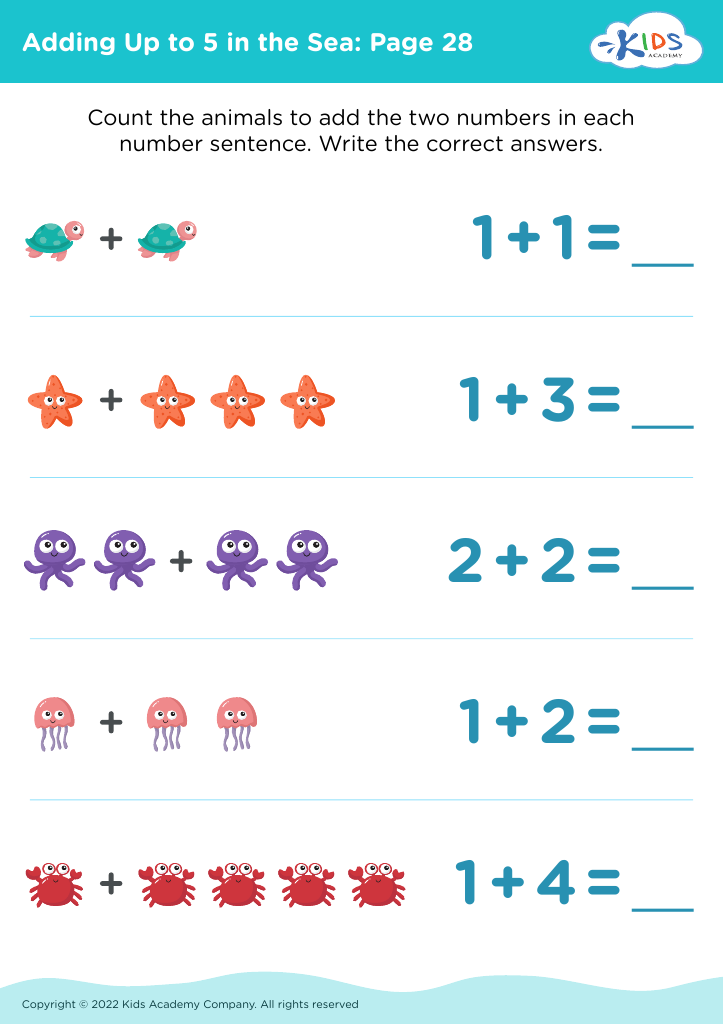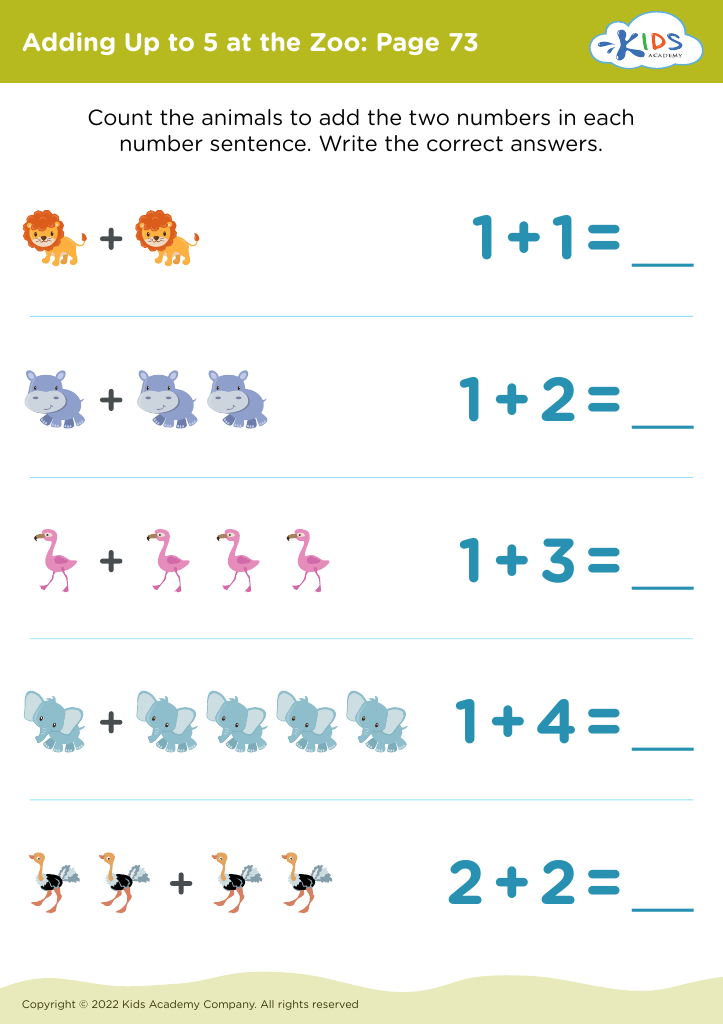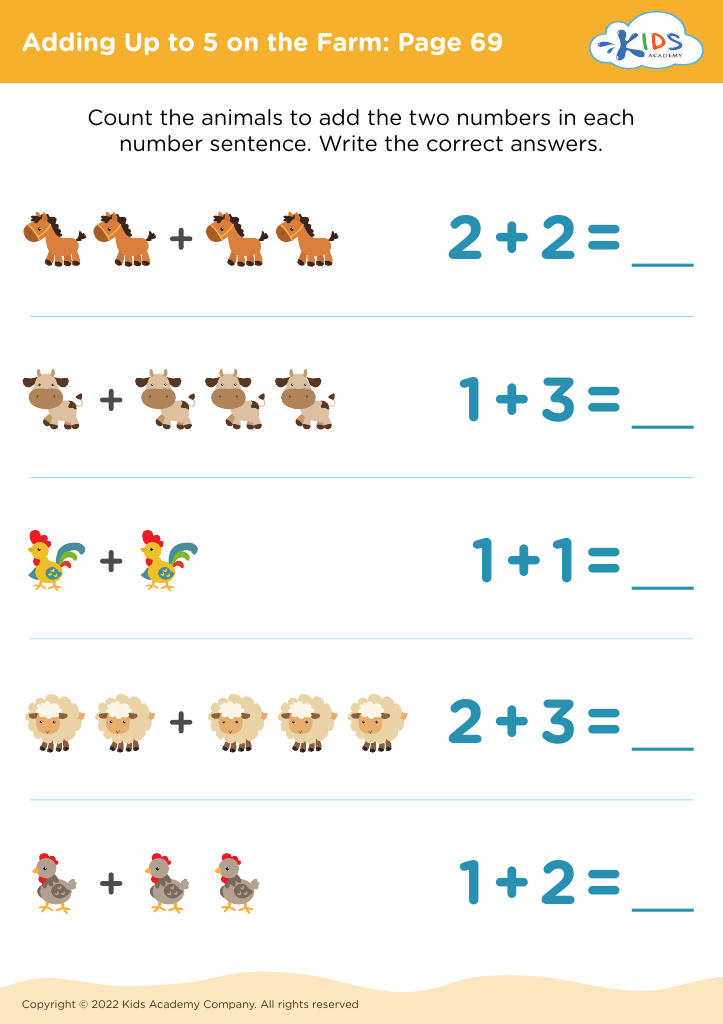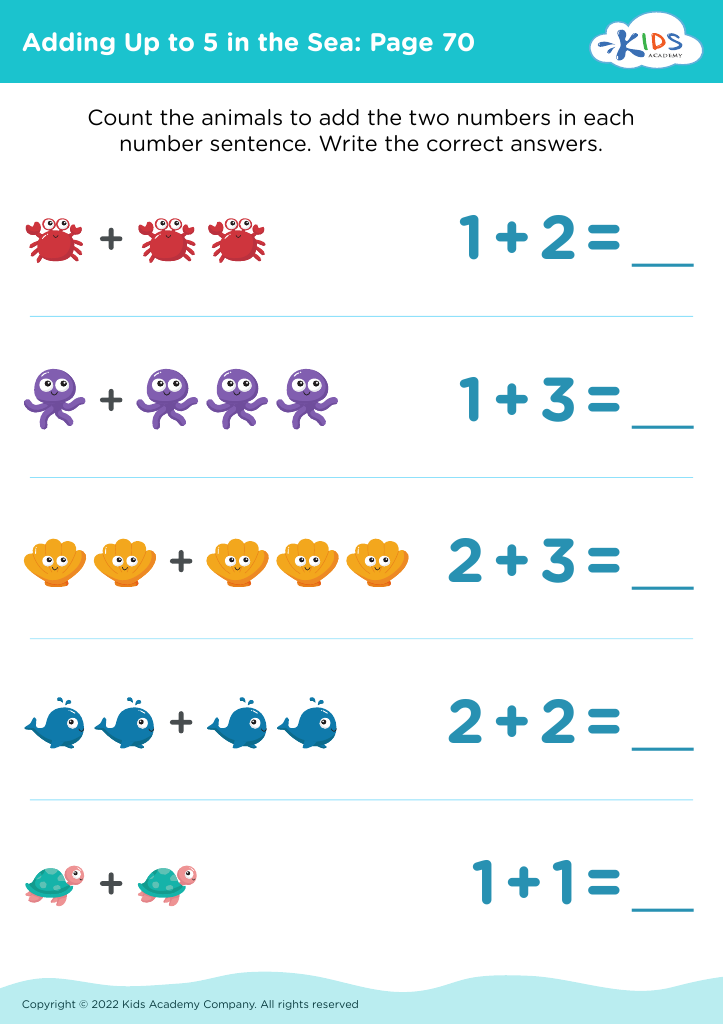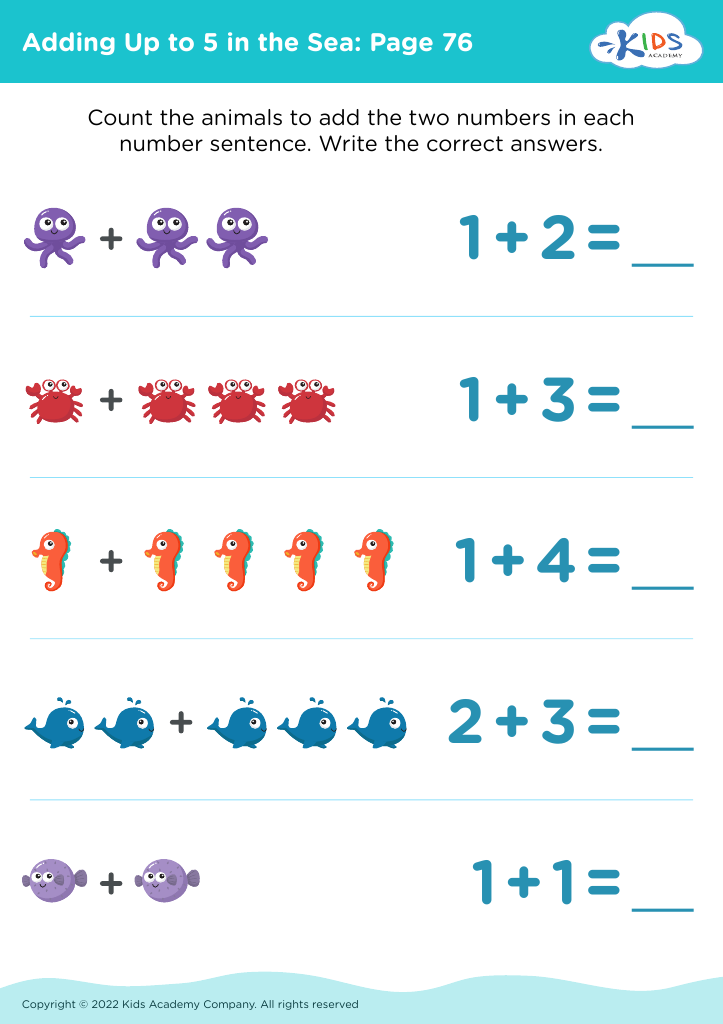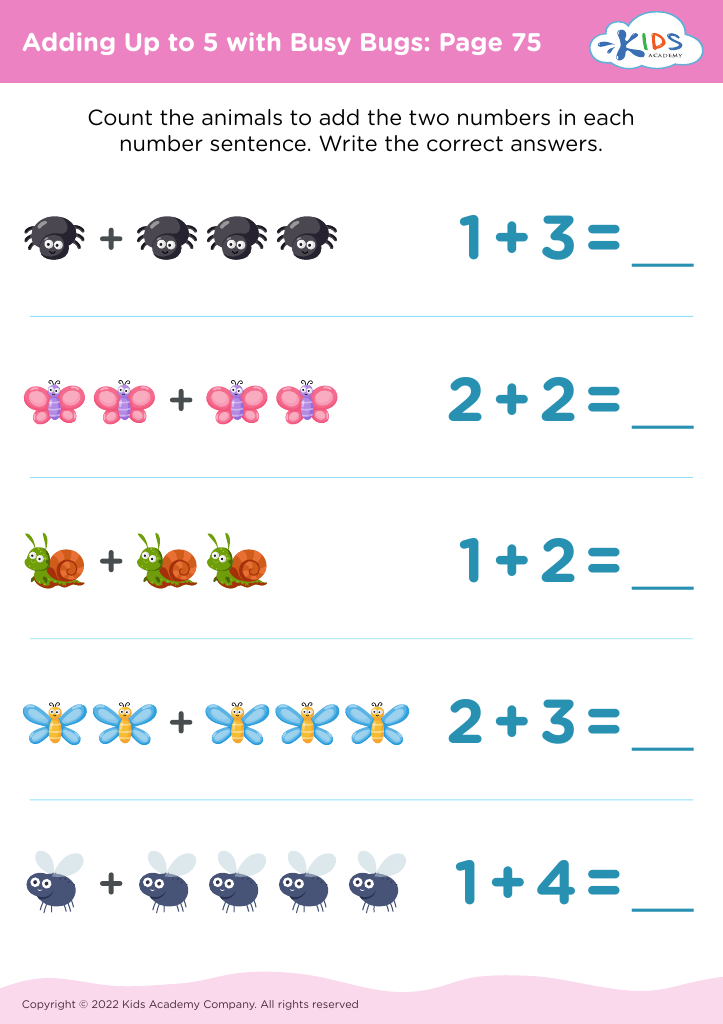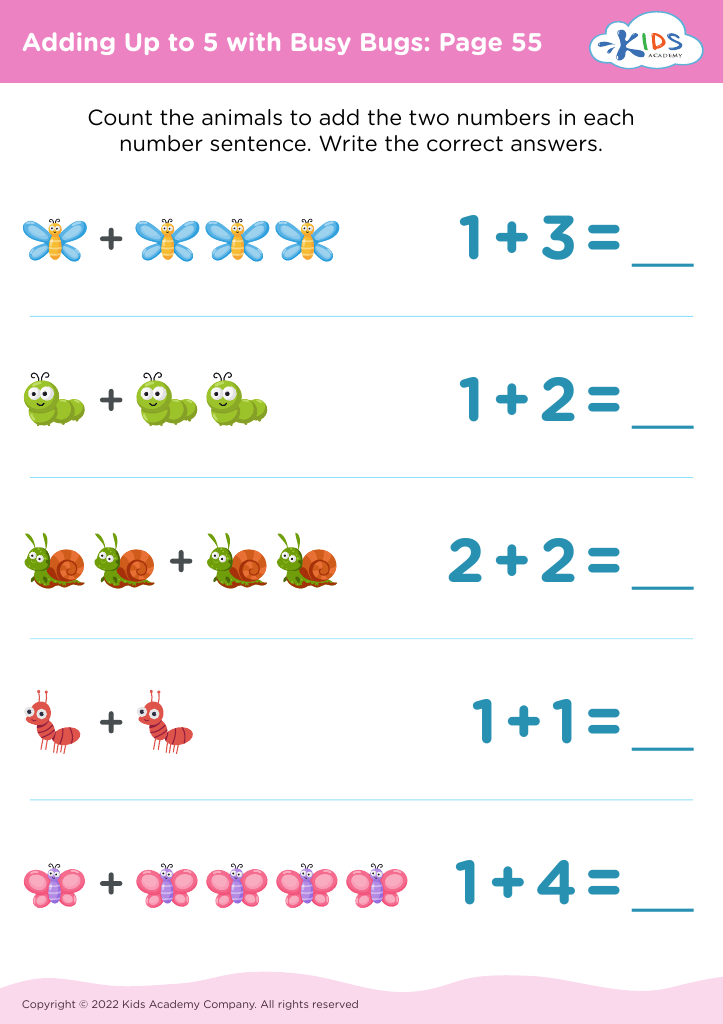Basic Math understanding Worksheets for Ages 4-9
14 filtered results
-
From - To
Unlock the world of numbers with our engaging Basic Math Understanding Worksheets, designed specifically for children ages 4-9! These printable resources foster foundational math skills through fun, interactive activities that include counting, addition, subtraction, and number recognition. Tailored to cater to various learning levels, our worksheets encourage kids to explore math concepts in a playful manner, enhancing problem-solving and critical thinking abilities. Each worksheet promotes hands-on learning and combines visual and tactile methods to help children grasp essential math principles with ease. Perfect for home or classroom use, our worksheets make math enjoyable and accessible, setting the stage for future success in mathematics!
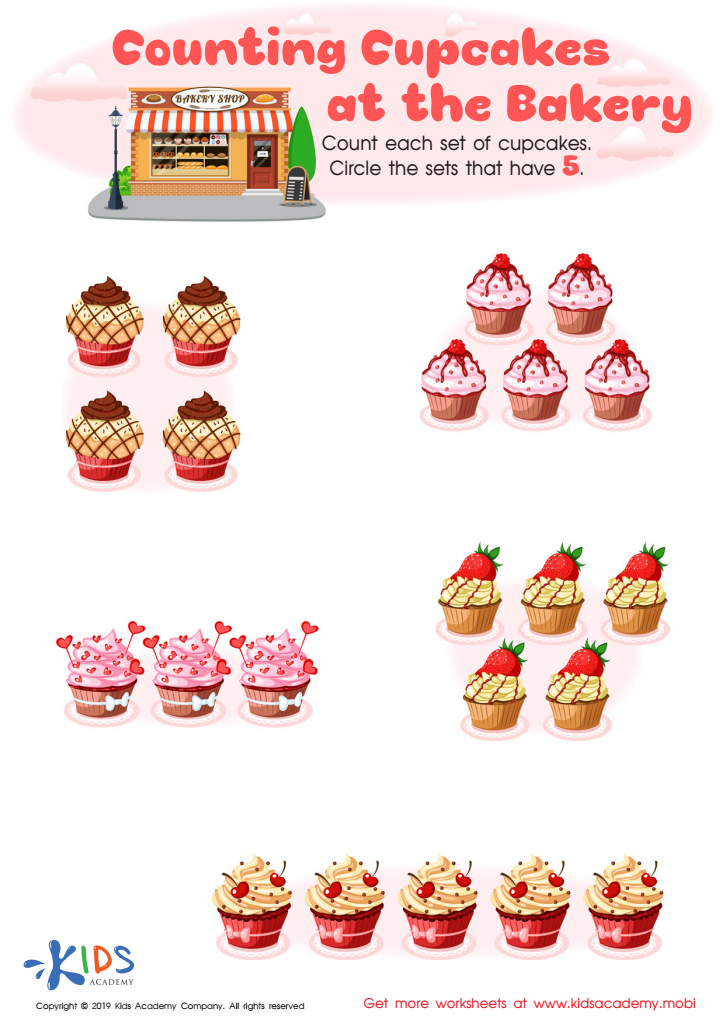

Counting Cupcakes Worksheet
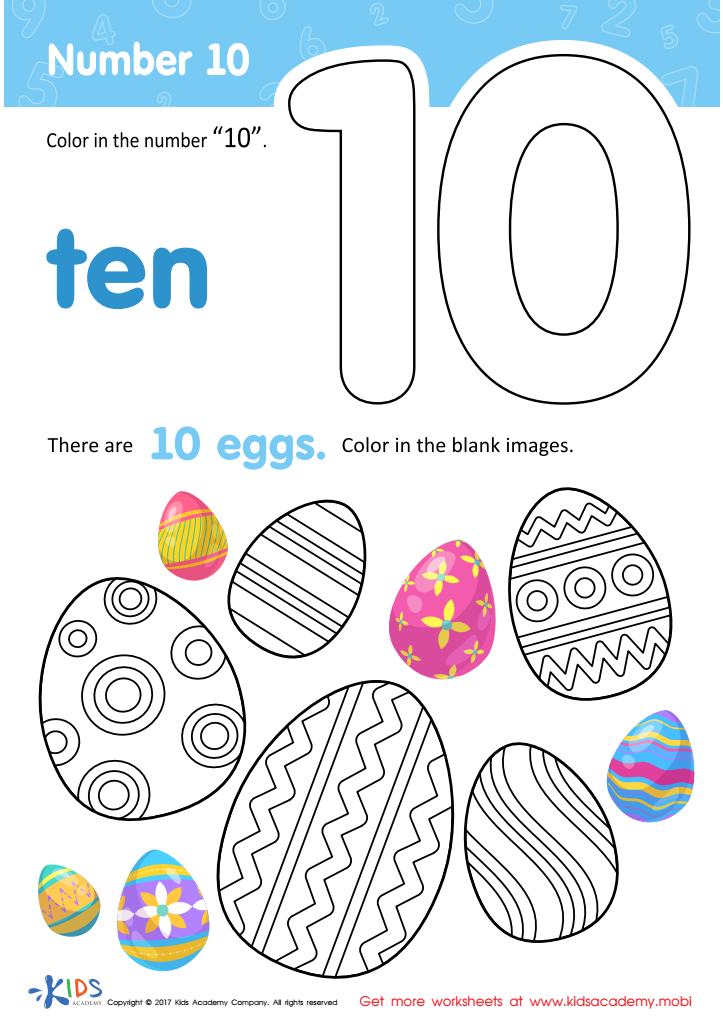

Number 10 Printable
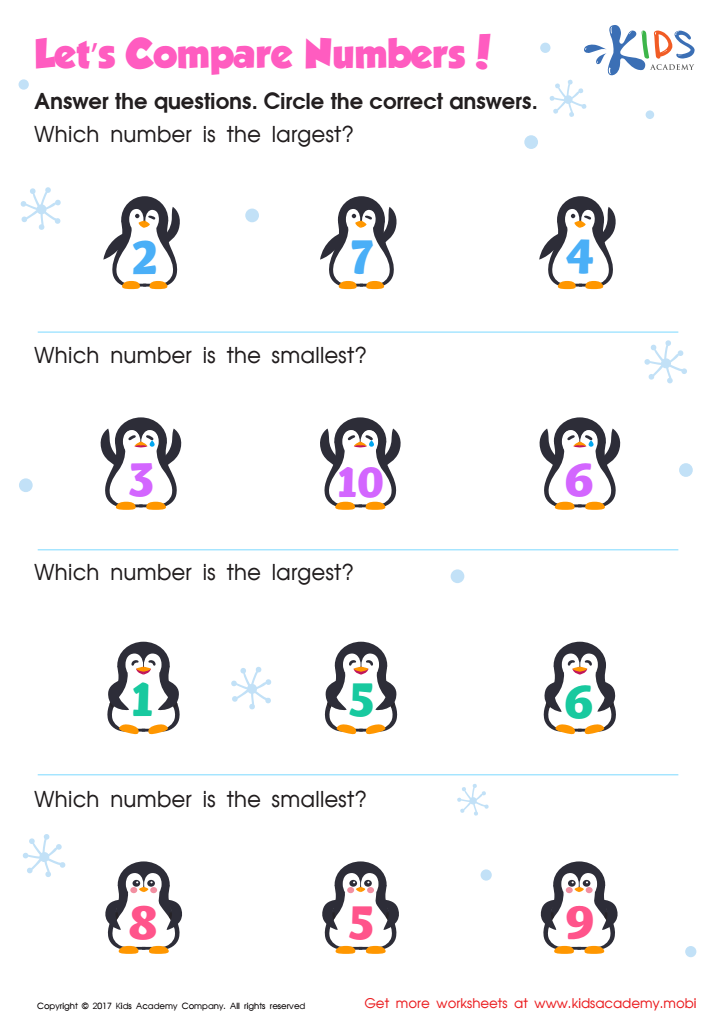

Comparing Numbers 1–10 Worksheet Kindergarten
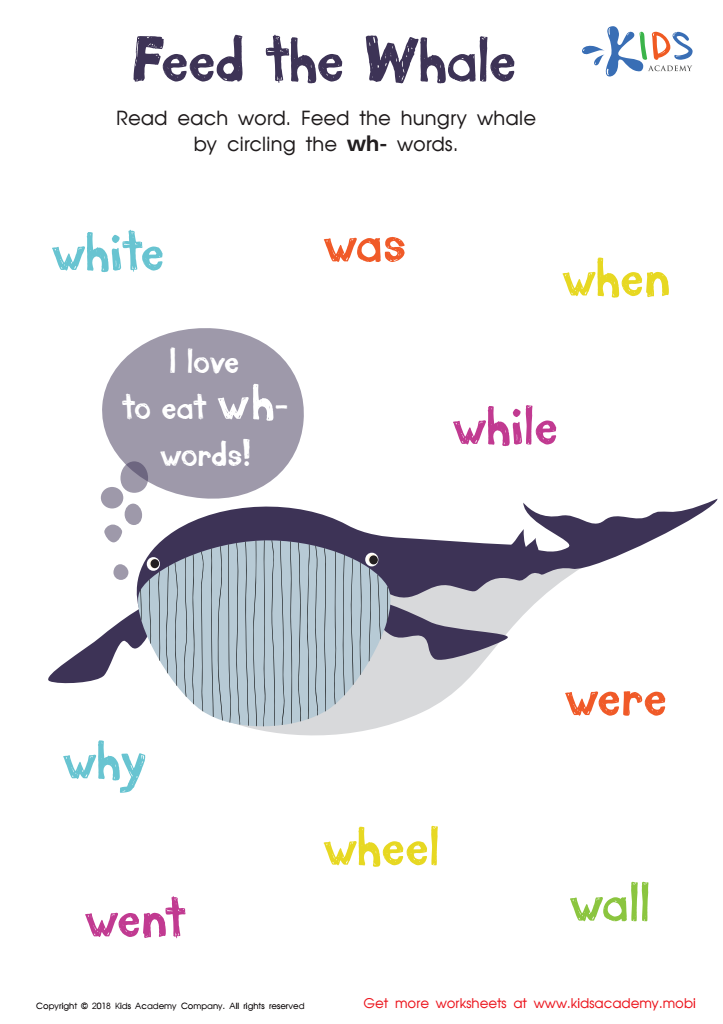

Feed the Whale Worksheet
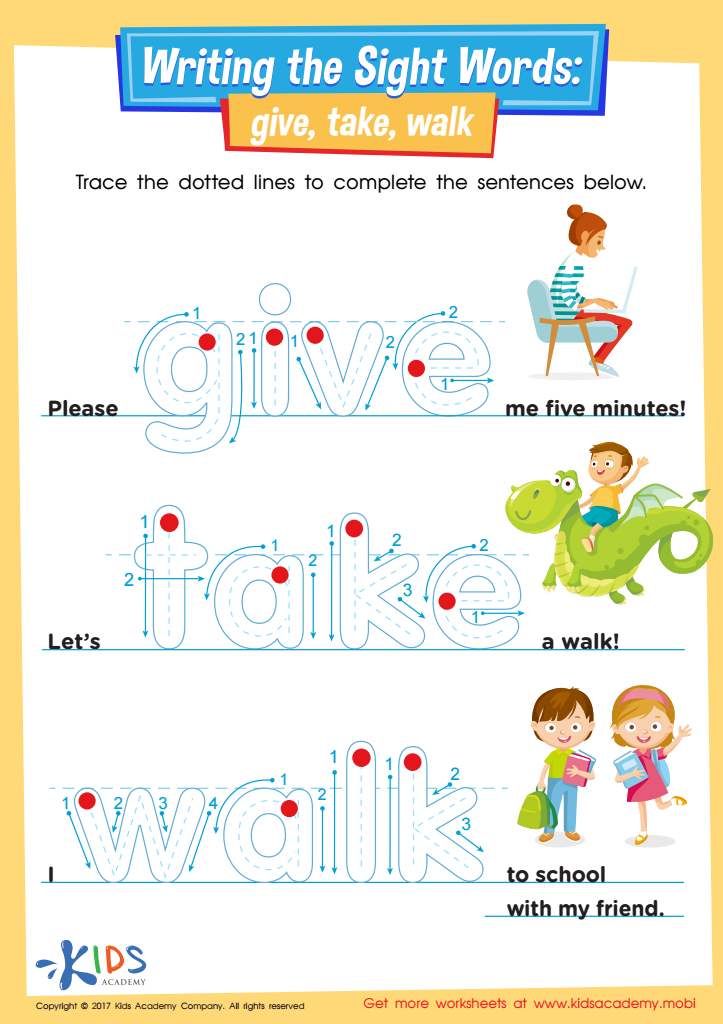

Give, Take, Walk Printable Sight Words Worksheet
Basic math understanding is crucial for children aged 4-9, laying the foundation for their future academic success and everyday problem-solving skills. At this critical developmental stage, children are naturally curious and eager to learn. Introducing math concepts early helps nurture this curiosity, promoting logical thinking and cognitive development. Simple activities like counting objects, recognizing shapes, and understanding patterns enhance their ability to think analytically, which is crucial across all subjects.
Moreover, basic math skills are fundamental for everyday life. Children learn to make sense of the world around them, developing skills needed for shopping, cooking, and even managing time. When parents and teachers prioritize math understanding, they empower children to build confidence in their abilities, paving the way for a positive outlook on learning.
Furthermore, early math skills are often predictors of later success in more complex mathematical concepts. Children who struggle with basic math may face challenges in later grades, potentially leading to a cycle of frustration and decreased motivation. By fostering a strong grasp of basic math during these formative years, parents and teachers play a vital role in setting children up for lifelong learning and resilience in facing challenges. Ultimately, investing in early math education equips children with essential skills to navigate their world effectively.

 Assign to My Students
Assign to My Students

